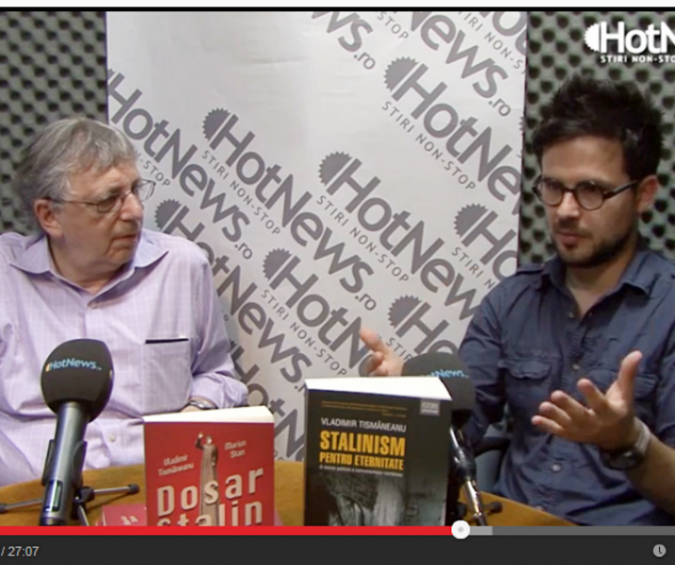Viktor Orbán’s Hungary has become a favorite seminar subject at North American universities; numerous talks and articles analyze the country’s sudden authoritarian turn.
On January 21, Vladimir Tismaneanu and Marius Stan gave a talk at the University of California at Berkeley entitled Orbanism, Putinism, and the New Onslaught on Liberal Democracy. (Details here.)
Mr. Tismaneanu is a Professor of Politics and Director of the Center for the Study of Post-Communist Societies, University of Maryland, College Park, while Mr. Stan is the Romanian Cultural Institute Scholar at the Wilson Center. Sixty-four year old Mr. Tismaneanu is well-known in the US. In the past, he chaired a Presidential Commission and also published several books. Ion Pacepa, former general in the Securitate, the secret police of Communist Romania, who later defected to the United States, wrote that Mr. Tismaneanu “is the perfect political analyst for today, for he is an expert on both the legacies of Nazism and Communism.”
Mr. Tismaneanu’s thesis is that a new authoritarian wave has been sweeping across Europe, walls are erected, Russian authoritarianism has made a comeback, Hungary is engaged in full de-democratization, Poland’s conservative right champions illiberal policies and in Romania, laws are proposed to punish “social defamation.” Illiberal tendencies flourish in several countries of Central and Eastern-Europe. “Does Fascism have a future in Europe?” he asks.
Mr. Tismaneanu and Mr. Stan pay special attention to Hungary. They published an article about Orbán’s rise entitled Illiberal Fantasies: Hungary’s Viktor Orbán Embraces Authoritarianism. They note that although Orbán’s intellectual mentor was the dissident and former Marxist, György Bence, he has shifted towards “a collectivist authoritarianism with pointblank xenophobic inflections.”
The authors compare Prime Minister Orbán’s rise and transformation to Mussolini’s. They write: ”This might sound rather harsh, but the Orbán case is reminiscent of Mussolini’s conversion, a century ago, from an internationalist socialist into a nationalist fascist.” At this point in his inner evolution, Viktor Orbán seems “condemned to condemn.” When, in 2002, Fidesz lost the elections, he thundered that “the nation cannot be part of the opposition.” Orbán has taken his country on a dangerous road, Hungary may destabilize if tensions overboil and slip towards what the authors call “mimetic circle of violence.”
Not only seasoned academics but students too have condemning words about Hungary’s policies. In the Stanford Political Journal, Ms. Rachel Hirshman a political science student wrote about migrant policies and she quotes Orbán: “Let us not forget, that those arriving have been raised in another religion, and represent a radically different culture. Most of them are not Christians, but Muslims . . . Is it not worrying in itself that European Christianity is not barely able to keep Europe Christian? If we lose sight of this, the idea of Europe could become a minority interest in its own continent.”
Hirshman’s conclusion is that while it is true that many of the refugees seeking asylum practice Islam, “that is no justification for the extreme xenophobia and inappropriate othering in Mr. Orbán’s rhetoric. His hateful speech demands a response.”
To read Vladimir Tismaneanu’s and Marius Stan’s analysis about Hungary’s illiberal fantasies please click here, while Ms. Hirshman’s article can be reached by clicking here.
György Lázár




